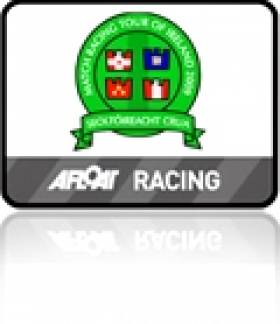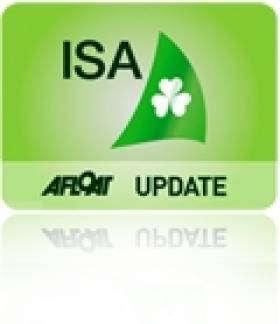Displaying items by tag: J80 fleet
Howth Yacht Club to Stage 2015 ISAF Nations Cup European Final
#matchracing – Ireland's hosting of International Match racing events is set to to continue in 2015 with Howth Yacht Club's annuoncement that it will host the 2015 Nations Cup European Final on 7-10th May 2015. It follows the acclaimed 2014 staging of the ISAF Women's Match Racing World Championship at Royal Cork Yacht Club.
The Howth result follows a recent decent decision by ISAF to award the worldwide regional finals to Buenos Aires (South America), Brisbane (Oceania), San Diego (North America), Tunis (Africa), Bahrain (Asia) and Howth (Europe). The Grand Final will be held in Vladivostok on 14-19th July.
As per the Notice of Race, the ISAF host member national authority may nominate an entry in each of the Open and Women's Division.
The event will be run in the ISA Sailfleet J80s and the full schedule will be announced in due course.
The ISAF Nations Cup was first introduced to the world in 1991. Open and Women's contests are run and it is based on a series of Regional Finals with the top crews meeting at the Grand Final.
Racing at the Regional Finals is preceded by an ISAF Match Racing Clinic, aimed to help develop match racing skills and officiating in that region. The winners of each Regional Final progress to the Grand Final, where they are joined by the defending nation and the host nation.
All relevant information will be published and available on the ISAF website - sailing.org
The aim of the event is to broaden the availability of match racing and provide international match racing competition for national authorities and sailors at a reasonable cost, whilst acting as an incentive for national match racing programmes.
Defending Champion Enters Final After Light Air Contest
As a high pressure sits over Ireland the big question at tonight's Royal Cork celebration dinner for the All Ireland championships is what wind will there be for tomorrow's final?
After a second day of heats and with some racing postponed with light winds it is clear defending champion Nicholas O'Leary will be going through to tomorrow's final and a chance of a record breaking hat trick of wins in the event.
Just four knots of breeze showed for the first gun of the J80 fleet and although the sun was up the north east breeze kept shifting.
PRO for the J80 fleet, David O’Brien, got in two races for Flight 2. The third race was postponed and the race area was moved to the outer harbour at Ringabella Bay and Race 1 of Flight 3 was completed with a shortened course.
An attempt at a second race was abandoned when the wind shifted more into the west. However, on the second attempt having changed the course, a second race was completed in this Flight.
Pictures from Bob Bateman on the gallery HERE
Provisional results from Flight 3, Race 2
Boat Helm Race 2
5 Neil Kenefick 1
4 Flor O'Driscoll 2
3 Anthony O'Leary 3
6 James Espey 4
2 Sean Craig 5
1 Laurence Hanley 6
8 Andrew Creighton 7
*** *** ***
Provisional results from Flight 3, Race 1
Boat Helm Race 1
6 James Espey 1
3 Anthony O'Leary 2
5 Neil Kenefick 3
2 Sean Craig 4
1 Laurence Hanley 5
4 Flor O'Driscoll 6
8 Andrew Creighton 7
Due to light winds Race 3 from Flight 2 has been postponed.
Provisional Results from Flight 2, Race 1 & 2
Boat Helm Race 1 Race 2 Race 3
1 Nicholas O'Leary 123
8 Ewen Barry 235
6 Noel Butler 617
3 Daire O'Reilly 358
4 Jim Dempsey 448
2 Gordon Patterson 5712
5 Ben Duncan 7613






























































